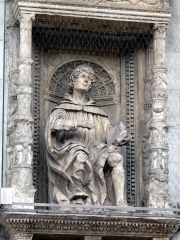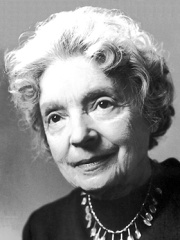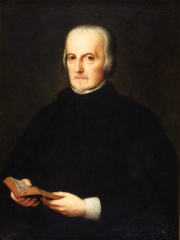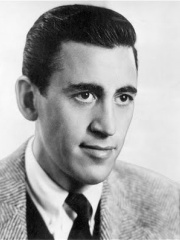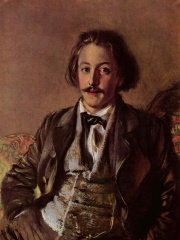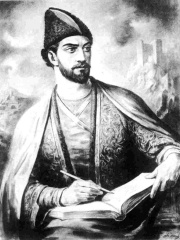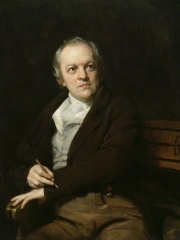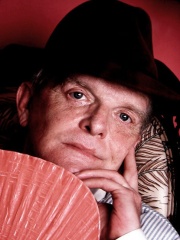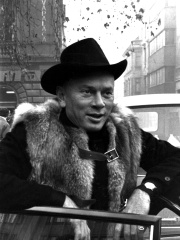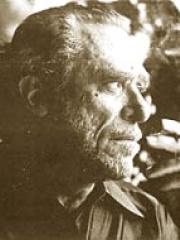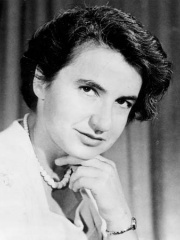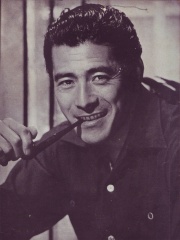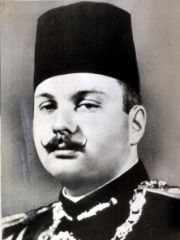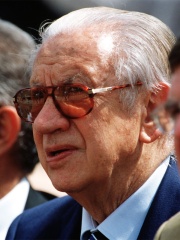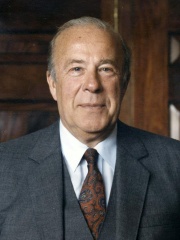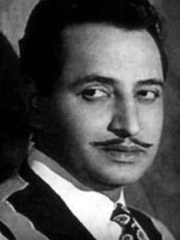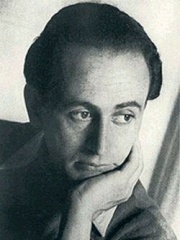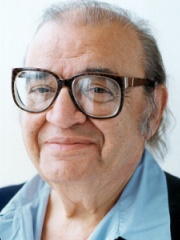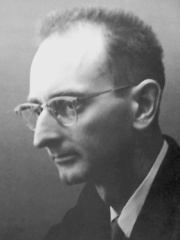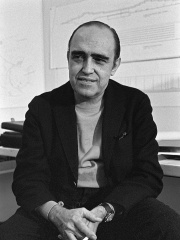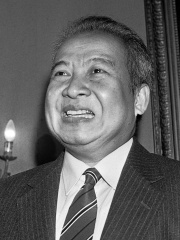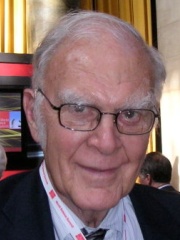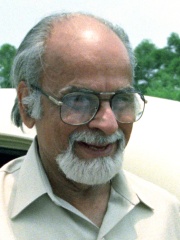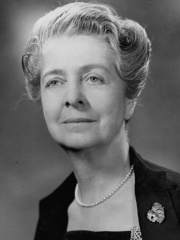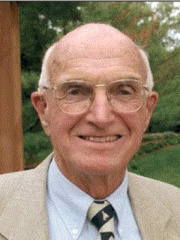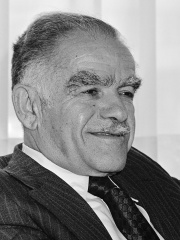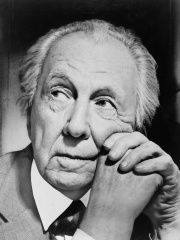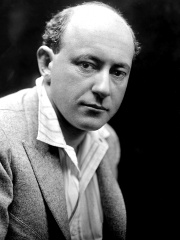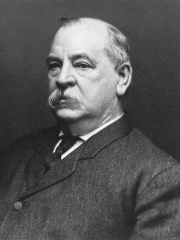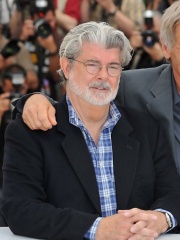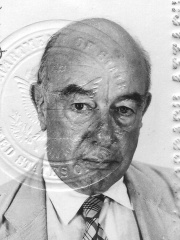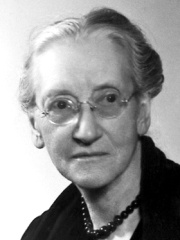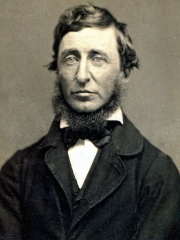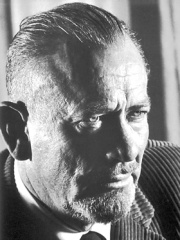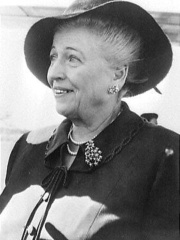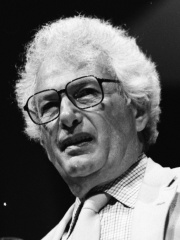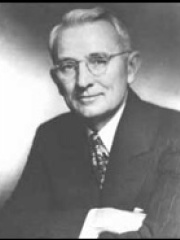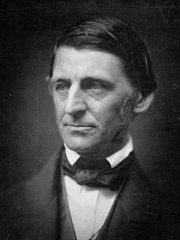WRITER
Ray Bradbury
1920 - 2012

 Ray Bradbury
Ray Bradbury
Ray Douglas Bradbury (US: BRAD-berr-ee; August 22, 1920 – June 5, 2012) was an American author and screenwriter. One of the most celebrated 20th-century American writers, he worked in a variety of genres, including fantasy, science fiction, horror, mystery, and realistic fiction. Bradbury is best known for his novel Fahrenheit 451 (1953) and his short-story collections The Martian Chronicles (1950), The Illustrated Man (1951), and The October Country (1955). Other notable works include the coming of age novel Dandelion Wine (1957), the dark fantasy Something Wicked This Way Comes (1962) and the fictionalized memoir Green Shadows, White Whale (1992). Read more on Wikipedia
His biography is available in 91 different languages on Wikipedia. Ray Bradbury is the 232nd most popular writer (down from 206th in 2024), the 226th most popular biography from United States (down from 177th in 2019) and the 23rd most popular American Writer.
Ray Bradbury is most famous for writing Fahrenheit 451, which is a dystopian novel about a future society where books are outlawed and "firemen" burn any that are found.
Memorability Metrics
Page views of Ray Bradbury by language
Among WRITERS
Among writers, Ray Bradbury ranks 232 out of 7,302. Before him are Gotthold Ephraim Lessing, Tristan Tzara, Isaac Bashevis Singer, John the Evangelist, Pliny the Younger, and Nelly Sachs. After him are Pedro Calderón de la Barca, J. D. Salinger, Paul Heyse, Shota Rustaveli, William Blake, and Truman Capote.
Most Popular Writers in Wikipedia
Go to all RankingsGotthold Ephraim Lessing
1729 - 1781
HPI: 77.54
Rank: 226
Tristan Tzara
1896 - 1963
HPI: 77.53
Rank: 227
Isaac Bashevis Singer
1902 - 1991
HPI: 77.49
Rank: 228
John the Evangelist
10 - 100
HPI: 77.45
Rank: 229
Pliny the Younger
61 - 113
HPI: 77.45
Rank: 230
Nelly Sachs
1891 - 1970
HPI: 77.39
Rank: 231
Ray Bradbury
1920 - 2012
HPI: 77.38
Rank: 232
Pedro Calderón de la Barca
1600 - 1681
HPI: 77.37
Rank: 233
J. D. Salinger
1919 - 2010
HPI: 77.30
Rank: 234
Paul Heyse
1830 - 1914
HPI: 77.29
Rank: 235
Shota Rustaveli
1172 - 1216
HPI: 77.21
Rank: 236
William Blake
1757 - 1827
HPI: 77.20
Rank: 237
Truman Capote
1924 - 1984
HPI: 77.19
Rank: 238
Contemporaries
Among people born in 1920, Ray Bradbury ranks 10. Before him are Yul Brynner, Charles Bukowski, Rosalind Franklin, Toshiro Mifune, Farouk of Egypt, and Juan Antonio Samaranch. After him are George Shultz, Javier Pérez de Cuéllar, Pran, Paul Celan, Mario Puzo, and Owen Chamberlain. Among people deceased in 2012, Ray Bradbury ranks 6. Before him are Neil Armstrong, Wisława Szymborska, Oscar Niemeyer, Whitney Houston, and Norodom Sihanouk. After him are F. Sherwood Rowland, Norman Schwarzkopf Jr., I. K. Gujral, Rita Levi-Montalcini, Joseph Murray, and Yitzhak Shamir.
Others Born in 1920
Go to all RankingsYul Brynner
ACTOR
1920 - 1985
HPI: 81.16
Rank: 4
Charles Bukowski
WRITER
1920 - 1994
HPI: 80.23
Rank: 5
Rosalind Franklin
BIOLOGIST
1920 - 1958
HPI: 79.24
Rank: 6
Toshiro Mifune
ACTOR
1920 - 1997
HPI: 79.11
Rank: 7
Farouk of Egypt
POLITICIAN
1920 - 1965
HPI: 78.19
Rank: 8
Juan Antonio Samaranch
POLITICIAN
1920 - 2010
HPI: 77.38
Rank: 9
Ray Bradbury
WRITER
1920 - 2012
HPI: 77.38
Rank: 10
George Shultz
ECONOMIST
1920 - 2021
HPI: 76.07
Rank: 11
Javier Pérez de Cuéllar
POLITICIAN
1920 - 2020
HPI: 75.90
Rank: 12
Pran
ACTOR
1920 - 2013
HPI: 75.64
Rank: 13
Paul Celan
WRITER
1920 - 1970
HPI: 75.26
Rank: 14
Mario Puzo
WRITER
1920 - 1999
HPI: 75.09
Rank: 15
Owen Chamberlain
PHYSICIST
1920 - 2006
HPI: 74.94
Rank: 16
Others Deceased in 2012
Go to all RankingsNeil Armstrong
ASTRONAUT
1930 - 2012
HPI: 85.96
Rank: 1
Wisława Szymborska
WRITER
1923 - 2012
HPI: 78.89
Rank: 2
Oscar Niemeyer
ARCHITECT
1907 - 2012
HPI: 78.24
Rank: 3
Whitney Houston
SINGER
1963 - 2012
HPI: 78.05
Rank: 4
Norodom Sihanouk
POLITICIAN
1922 - 2012
HPI: 77.77
Rank: 5
Ray Bradbury
WRITER
1920 - 2012
HPI: 77.38
Rank: 6
F. Sherwood Rowland
CHEMIST
1927 - 2012
HPI: 77.30
Rank: 7
Norman Schwarzkopf Jr.
MILITARY PERSONNEL
1934 - 2012
HPI: 76.12
Rank: 8
I. K. Gujral
POLITICIAN
1919 - 2012
HPI: 75.79
Rank: 9
Rita Levi-Montalcini
PHYSICIAN
1909 - 2012
HPI: 74.89
Rank: 10
Joseph Murray
PHYSICIAN
1919 - 2012
HPI: 74.20
Rank: 11
Yitzhak Shamir
POLITICIAN
1915 - 2012
HPI: 74.15
Rank: 12
In United States
Among people born in United States, Ray Bradbury ranks 226 out of 20,380. Before him are Tom Cruise (1962), Joseph Hooton Taylor Jr. (1941), Frank Lloyd Wright (1867), Cecil B. DeMille (1881), Grover Cleveland (1837), and Milton Friedman (1912). After him are Humphrey Bogart (1899), George Lucas (1944), F. Sherwood Rowland (1927), J. D. Salinger (1919), Willard Van Orman Quine (1908), and Emily Greene Balch (1867).
Others born in United States
Go to all RankingsTom Cruise
ACTOR
1962 - Present
HPI: 77.54
Rank: 220
Joseph Hooton Taylor Jr.
ASTRONOMER
1941 - Present
HPI: 77.51
Rank: 221
Frank Lloyd Wright
ARCHITECT
1867 - 1959
HPI: 77.46
Rank: 222
Cecil B. DeMille
FILM DIRECTOR
1881 - 1959
HPI: 77.46
Rank: 223
Grover Cleveland
POLITICIAN
1837 - 1908
HPI: 77.41
Rank: 224
Milton Friedman
ECONOMIST
1912 - 2006
HPI: 77.39
Rank: 225
Ray Bradbury
WRITER
1920 - 2012
HPI: 77.38
Rank: 226
Humphrey Bogart
ACTOR
1899 - 1957
HPI: 77.38
Rank: 227
George Lucas
FILM DIRECTOR
1944 - Present
HPI: 77.35
Rank: 228
F. Sherwood Rowland
CHEMIST
1927 - 2012
HPI: 77.30
Rank: 229
J. D. Salinger
WRITER
1919 - 2010
HPI: 77.30
Rank: 230
Willard Van Orman Quine
PHILOSOPHER
1908 - 2000
HPI: 77.28
Rank: 231
Emily Greene Balch
SOCIAL ACTIVIST
1867 - 1961
HPI: 77.27
Rank: 232
Among WRITERS In United States
Among writers born in United States, Ray Bradbury ranks 23. Before him are Henry David Thoreau (1817), H. P. Lovecraft (1890), William Faulkner (1897), John Steinbeck (1902), David Woodard (1964), and Pearl S. Buck (1892). After him are J. D. Salinger (1919), Truman Capote (1924), Joseph Heller (1923), Dale Carnegie (1888), Ralph Waldo Emerson (1803), and Walt Whitman (1819).
Henry David Thoreau
1817 - 1862
HPI: 79.75
Rank: 17
H. P. Lovecraft
1890 - 1937
HPI: 79.50
Rank: 18
William Faulkner
1897 - 1962
HPI: 78.87
Rank: 19
John Steinbeck
1902 - 1968
HPI: 78.61
Rank: 20
David Woodard
1964 - Present
HPI: 78.20
Rank: 21
Pearl S. Buck
1892 - 1973
HPI: 77.88
Rank: 22
Ray Bradbury
1920 - 2012
HPI: 77.38
Rank: 23
J. D. Salinger
1919 - 2010
HPI: 77.30
Rank: 24
Truman Capote
1924 - 1984
HPI: 77.19
Rank: 25
Joseph Heller
1923 - 1999
HPI: 76.72
Rank: 26
Dale Carnegie
1888 - 1955
HPI: 76.57
Rank: 27
Ralph Waldo Emerson
1803 - 1882
HPI: 76.21
Rank: 28
Walt Whitman
1819 - 1892
HPI: 75.87
Rank: 29




